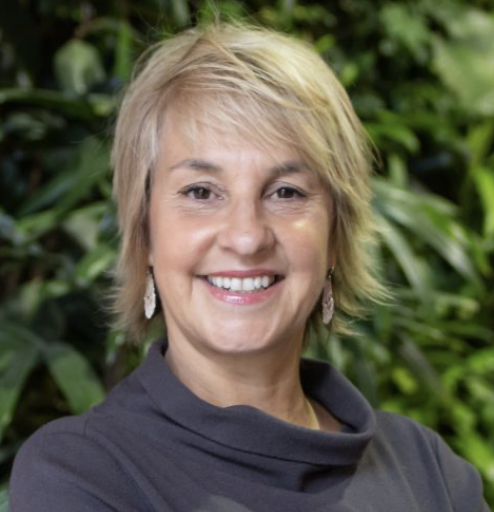Joanna Kerr
MakeWay, Canada
Case Study
How would you like to be described?
I describe myself as a global citizen, feminist and environmentalist committed to human rights and nature. I’ve led a multitude of impactful organisations from AWID to ActionAid, from Greenpeace Canada to MakeWay.
How would you describe what you do?
I connect people, move resources and advance solutions so that nature and communities can thrive together.
What is your greatest achievement?
I would say it is the great number of women, around the world, that I have mentored and supported that have gone on to do amazing things from the local to global level.
What was the cause or ’trigger for this journey of making the world a better place through being useful and kind? And how old were you? When did you realise you could make a difference?
When I was 10 years old, my family moved from Toronto Canada to Dar es Salaam Tanzania. It was there I discovered that kids were getting sick because of lack of clean drinking water. That seemed so unfair. White privilege was made clear to me. From that point on I always felt a responsibility to do something…so I ended up doing my first degree in African Studies, second in Gender and Development then went on to work to change the systems that reinforce inequality. My mother ensured I was useful. My father ensured I was kind.
Was it something your parents are/would have been proud of and encouraged?
My parents always encouraged me - they worked around the world and understood the need for change. They were thrilled I could do something useful.
Who or what were your early influences?
Steve Biko - his murder shocked me. My grandmother - her strong voice inspired me. Gerald Durell - his books fascinated me about the natural world.
What were you doing at 16?
I was back in high school back in Toronto, after doing a student exchange in Germany, dreaming about travel, dancing a lot, and having a wonderful time with friends.
What advice would you give your 16 year old self?
Don’t think that only the kids with the very top grades will “be successful”. Make sure you get involved in as many things that you are passionate about, as this will make you a more rounded, adaptable, happy person!
What advice would you give to other young people?
Learn to meditate! I only really started meditating in my 40s, but had I had that capacity much earlier I would have been able to have separated so many of my thoughts (ie worries and fears) from what was really objectively going on. I would have forgiven myself much sooner (for all the things I wasn’t doing, or doing well enough) and been more forgiving to others.
What has been the most difficult challenge on the way and how did you overcome it?
I have had to work with some really difficult people through the years: people whose leadership approach I fundamentally disagreed with. I learned to understand them, why they act the way they do, staying curious to their suffering. And when it all got too much, I simply moved on!
What do you think are the changes we need to see in the world and how can being U&K help solve those things?
If I was to boil it all down, I think we humans need to see how we are all interconnected with one another and with nature. In this way, we start communicating as humans with curiosity not fear or judgement. With other species we can start practicing reciprocity and taking responsibility for nature given all that it gives us.
How are you useful and kind to yourself - what helps and hinders?
Even with my big jobs I truly take 4 weeks off a year - two weeks in January and July - to be off-line and in nature with my partner. That has helped me take care of my body mind and spirit. My big challenge is saying no - I say yes to too many things and when it hits a crunch I end up being neither useful nor kind to myself or others!
How are you both useful and kind to others (the easy ones and those who are more difficult to be U&K to)?
As often as I can I meet with individuals on the margins trying to ‘get ahead’ to see what connections I can make for them, or perspectives that I could share that might give them solutions for their own path. For those most difficult people, I always try to understand what is behind their anger/cynicism/judgement: it is usually a fear that is causing those behaviours that comes from a form of suffering. It goes back to forgiveness.
What is your biggest challenge in the future?
Figuring out how we speed up behaviour change so that we get to climate action and biodiversity protection soon enough!
What do you wish you had done differently?
Learn French fluently.

